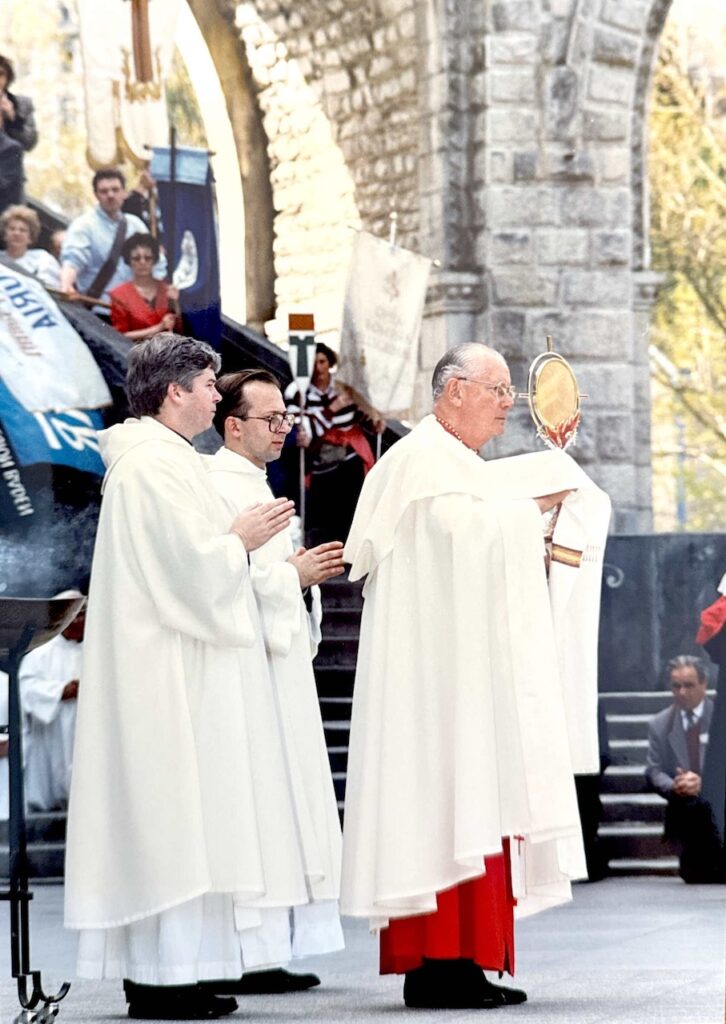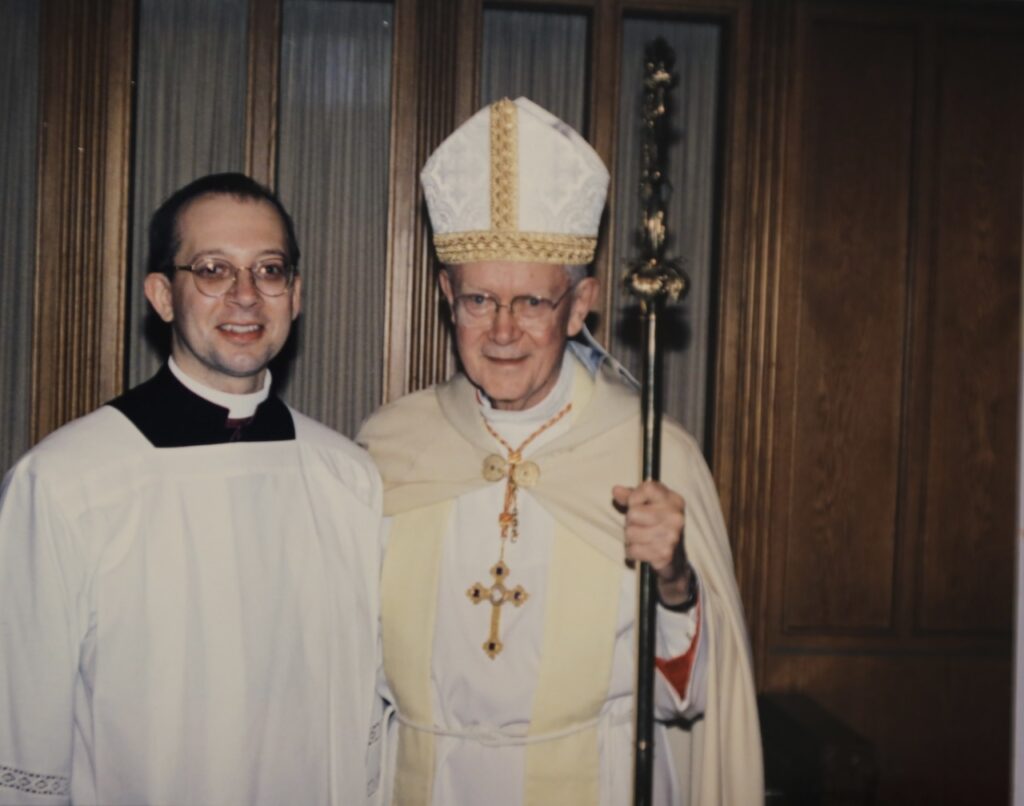Most of us can name at least one person who has had an unexpected impact upon our lives. It might be a teacher, coach, coworker, employer – any number of people. It could be someone from our youth, young adult years or any point in our lives.
One such person in my life was Cardinal James A. Hickey, who served as archbishop of Washington from 1980 until his retirement in 2000. Oct. 24 marks the 20th anniversary of his death at the age of 84.
In 1993, I was serving as parochial vicar in a parish when the cardinal asked me to serve as his assistant. I’m not sure why he chose me, as I don’t have a particular background in language or theology, nor do I have the advanced ecclesial degree one in that position often has.
I was only supposed to be with the cardinal for two years. He was 73, had led the archdiocese since 1980, and was looking forward to retiring at 75. As most bishops do in the years leading up to their retirement, Cardinal Hickey was preparing the archdiocese for its future.
However, there are two factors that might be coincidental or even extraordinary. Cardinal Hickey was born in October 1920, five months after Pope St. John Paul II. Both were ordained priests in 1946 – the cardinal in June, the pope in November. They died within six months of each other.
The Holy Father had great interest in anniversaries and the significance associated with them. Anticipating the coming of the new millennium, his whole pontificate was, in a sense, oriented toward ushering in the great jubilee of the year 2000. In March 1979, he spoke about it in the opening paragraph of his first encyclical, “The Redeemer of Man” (“Redemptor Hominis”):
“At this moment it is difficult to say what mark that year will leave on the face of human history or what it will bring to each people, nation, country and continent, in spite of the efforts already being made to foresee some events. For the Church, the People of God spread, although unevenly, to the most distant limits of the earth, it will be the year of a great Jubilee.”
Rather than have Cardinal Hickey retire at 75, the pontiff wanted him to celebrate his 80th birthday as archbishop of Washington during the Great Jubilee Year 2000. As the psalmist wrote: “Seventy is the sum of our years, or eighty, if we are strong…” (90:10).

Because the pope requested the cardinal to continue for five more years, I accompanied him through extraordinary times in the Church of Washington. In addition to routine events, e.g., ordinations, meeting with priests, confirmations, Holy Week and the annual March for Life, we also held a Eucharistic Congress.
I traveled with Cardinal Hickey to the Holy Land and on multiple occasions to Rome, including the 1995 World Synod of Bishops. For a young priest, it was an up close and eye-opening experience to see the depth, richness and beauty of the Church, as well as its foibles and failures.
My 10 years of service to him were a deep dive into the work of the Church. It was an extraordinary apprenticeship, an opportunity for me to learn what it means to be a Churchman – someone who serves the Church like Cardinal Hickey did – with unconditional commitment, devotion and expertise.
What I learned from Cardinal Hickey, and I mean this in the best sense of the word, is that he was careful – he was filled with care. He would want things checked and double checked to make certain they were the best they could be. He was attentive to details, especially in how he responded to people.
The high quality of work that he conveyed to those he encountered was authentic to his person, personality and life. It reflected seriousness and competence.
Cardinal Hickey’s love for the Church – its history, ceremonies, traditions and teaching – was expressed and carried out with pastoral care. He gave authority and impact to what he did, not only as he was serving as archbishop of Washington, but also to future generations. Many of the structures he established in the archdiocese continue to function today.
As I reflect upon my time with the cardinal, I do so with affection and gratitude. So much of what I do as a bishop today is marked by my experience with him – especially through his example of what it means to be a bishop and in how he carried out his work as archbishop of Washington.
While I didn’t know in 1993 why he asked me to be his assistant, nor could I have imagined the impact he would have upon me, I am convinced I would not be serving as a bishop if it were not for the experiences I had with Cardinal Hickey. The education and training I received in accompanying him were gifts for which I will be forever grateful – to him and to God.

